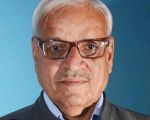The Rashtriya Swayamsevak Sangh (RSS), founded in 1925 by Dr. Keshav Baliram Hedgewar, played a significant role in India’s freedom struggle, though its contributions have often been misrepresented or underreported due to ideological biases. This analysis aims to clarify the RSS’s involvement, emphasizing the active participation of its volunteers and addressing criticisms, which largely stem from leftist historians and politicians within the Congress ecosystem.
The Founding and Early Objectives of the RSS
Established on Vijayadashami in 1925 in Nagpur, the RSS was created to organize Hindu society and awaken national consciousness. Dr. Hedgewar believed that India’s disunity was a key weakness, requiring a disciplined organization to foster cultural and social strength. While the RSS prioritized character-building and national pride over direct confrontation with the British in its early years, its efforts laid the groundwork for a resilient society that supported the broader freedom struggle.
RSS Contributions to the Freedom Struggle
Active Participation of Volunteers
RSS volunteers were unequivocally involved in India’s freedom struggle at an individual level. Dr. Hedgewar himself participated in the Non-Cooperation Movement of 1920 and the Civil Disobedience Movement of 1930, even enduring imprisonment in 1921 for his Congress-related activities, as noted in Panchjanya. Numerous RSS volunteers similarly joined freedom movements, contributing through protests, organizational efforts, and grassroots mobilization, despite the organization not formally leading these initiatives.
Cultural and Social Awakening
The RSS viewed true independence as encompassing political, cultural, and social dimensions. Through its shakhas, it instilled discipline, patriotism, and unity among youth, creating a socially cohesive base that strengthened the freedom struggle. Ramashish Singh of Pragya Pravah emphasizes that this focus on national consciousness was a vital, albeit indirect, contribution to the fight for independence.
Support for Revolutionary Activities
RSS volunteers provided critical support to revolutionary groups like the Hindustan Socialist Republican Army (HSRA). Sources, including an OpIndia article, highlight that volunteers offered safe havens and resources to figures like Chandrashekhar Azad. While some critics demand extensive documentation, the secretive nature of revolutionary work naturally limits such records, and the RSS’s contributions in this area are undeniable.
Role in the 1942 Quit India Movement
During the 1942 Quit India Movement, RSS volunteers played an active role, particularly in regions where Congress leaders were arrested. According to Republic Bharat, they maintained communication networks, distributed propaganda, and mobilized communities. These efforts were crucial in sustaining the movement’s momentum, countering claims that the RSS remained aloof.
Addressing Criticisms
Criticisms of the RSS’s role in the freedom struggle often originate from leftist historians and politicians aligned with the Congress ecosystem, who have portrayed the organization as detached or even complicit with the British. Claims on platforms like X, suggesting that the RSS organized no protests between 1925 and 1947 or had no martyrs, are misleading and lack historical nuance. Similarly, accusations regarding the RSS’s delayed acceptance of the tricolor or alleged involvement in Mahatma Gandhi’s assassination are unfounded. The RSS has consistently refuted these charges, and no legal evidence supports the latter. As noted in Live Hindustan, the organization’s focus on long-term societal empowerment through cultural unity was a deliberate strategy, not a compromise, and its volunteers made significant personal sacrifices.
The RSS’s Vision and Lasting Impact
The RSS believed that political freedom alone was insufficient without cultural and social strength. Its shakhas fostered unity and discipline, shaping a robust national identity that influenced post-independence India. Writers like Narendra Sehgal note that the RSS’s contributions are often underrecognized because its leaders prioritized service over publicity. The organization’s focus on nation-building continues to resonate, underscoring its enduring legacy.
The RSS’s role in India’s freedom struggle was marked by the active participation of its volunteers, who contributed through direct involvement, revolutionary support, and societal empowerment. Criticisms leveled against it, primarily from leftist and Congress-aligned historians and politicians, often distort this reality to fit ideological narratives. The RSS’s approach, rooted in cultural and social awakening, complemented the broader struggle for independence. A balanced understanding, grounded in historical evidence, affirms that the RSS and its volunteers played a vital role in India’s journey to freedom, with a vision for long-term nation-building that remains significant today.





